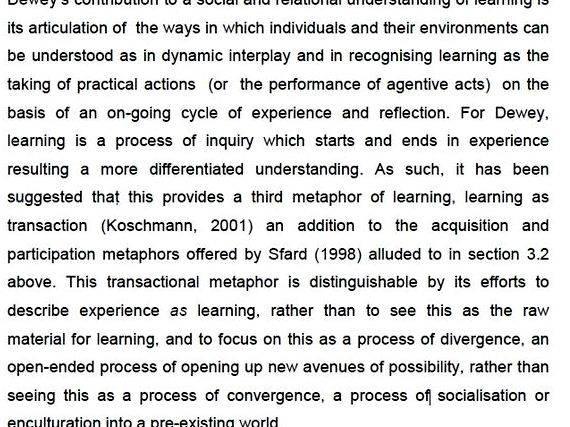
The focus of the Study Guide is the literature review within a dissertation or a thesis, but many of the ideas are transferable to other kinds of writing, such as an extended essay, or a report.
What is a literature review?
The ability to review, and to report on relevant literature is a key academic skill. A literature review:
- situates your research focus within the context of the wider academic community in your field;
- reports your critical review of the relevant literature; and
- identifies a gap within that literature that your research will attempt to address.
To some extent, particularly with postgraduate research, the literature review can become a project in itself. It is an important showcase of your talents of: understanding, interpretation, analysis, clarity of thought, synthesis, and development of argument. The process of conducting and reporting your literature review can help you clarify your own thoughts about your study. It can also establish a framework within which to present and analyse the findings.
After reading your literature review, it should be clear to the reader that you have up-to-date awareness of the relevant work of others, and that the research question you are asking is relevant. However, don’t promise too much! Be wary of saying that your research will solve a problem, or that it will change practice. It would be safer and probably more realistic to say that your research will ‘address a gap’, rather than that it will ‘fill a gap’.
Why do I need a literature review?
When readers come to your assignment, dissertation, or thesis, they will not just assume that your research or analysis is a good idea; they will want to be persuaded that it is relevant and that it was worth doing.

They will ask questions such as:

- What research question(s) are you asking?
- Why are you asking it/them?
- Has anyone else done anything similar?
- Is your research relevant to research/practice/theory in your field?
- What is already known or understood about this topic?
- How might your research add to this understanding, or challenge existing theories and beliefs?
These are questions that you will already probably be asking yourself. You will also need to be ready to answer them in a viva if you will be having one.
A critical review
It is important that your literature review is more than just a list of references with a short description of each one. The Study Guides: What is critical reading? and What is critical writing? are particularly relevant to the process of critical review. Merriam (1988:6) describes the literature review as:
‘an interpretation and synthesis of published work’.
This very short statement contains some key concepts, which are examined in the table below.
Previous answers to this question
This is a preview of an assignment submitted on our website by a student. If you need help with this question or any assignment help, click on the order button below and get started. We guarantee authentic, quality, 100% plagiarism free work or your money back.
 Get The Answer
Get The Answer